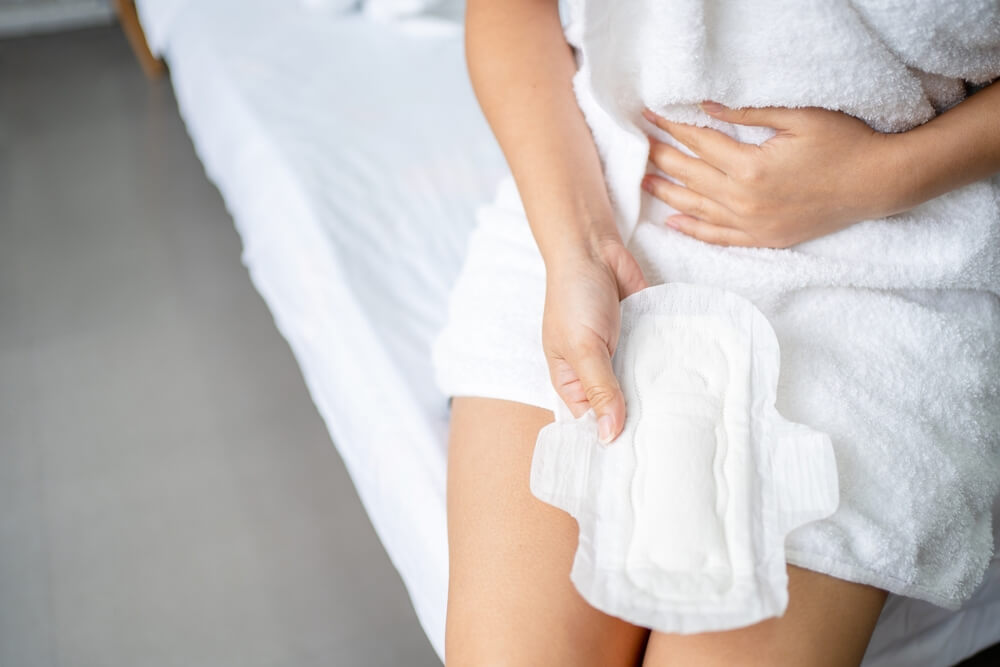Menorrhagia or abnormal bleeding is a term used to describe periods, which include heavy menstrual bleeding that lasts longer than what is typical for a monthly cycle. If there is a need for you to change the pad or any other menstrual hygiene product more frequently than every two hours, then this is a sign that you need to consult a doctor.
When suffering from menorrhagia, everyday activities you take on during your menstrual cycle could become a challenge, and they might take more additional effort, which can lead to exhaustion.
There are many helpful treatments for this condition, and in case you are looking for high-quality services, the menorrhagia treatment at ACE OBGYN is the option you might want to consider. Our team of experts will precisely know how to approach the problem and offer you different solutions in line with the severity of the situation.
Menorrhagia Symptoms
Menorrhagia symptoms are very evident and can be classified as follows:
- Changing one or more sanitary pads or other menstrual products more frequently than every two hours
- Changing sanitary products multiple times during the night
- Using more than one product at a time for additional anti-leakage support
- The menstrual cycle lasts longer than one week
- Anemia-like symptoms (headaches, weakness, fatigue, lightheadedness)
- Blood clots are as big as a quarter coin or larger
- Inability to perform everyday routines because of heavy menstrual bleeding
- Heavy pains during the menstrual cycle
If one or more of these symptoms start appearing, it is advised to speak to a medical professional to ensure that your reproductive health is not jeopardized.

Causes of Menorrhagia
Although the causes for some cases of this condition are still not completely explored, these are some of the most commonly known causes:
- Dysfunction of the ovaries occurs when they do not go through the phase of anovulation, and the body stops producing progesterone.
- Hormonal imbalance between the hormones estrogen and progesterone causes excess endometrium development (buildup which is shed during the cycle).
- Polyps and uterine fibroids which are benign growths in the uterus that cause heavy menstrual bleeding.
- Pregnancy complications caused by a miscarriage or an unusual position of the placenta.
- Intrauterine device usage is often followed by menorrhagia.
- Bleeding disorders, especially when a person has a deficiency of critical blood-clotting factors.
- Uterine or cervical cancer
- Taking certain medications such as painkillers, hormonal medication, and anticoagulants.
Why Is My Period Lasting Longer Than Usual?
To say that there is a norm when it comes to the menstrual cycle would be an incorrect statement. All women are different, and their monthly periods can differ in a variety of ways. While some women have a very regular, pain-free menstruation, other women suffer immensely every month, taking an immense number of painkillers, and cannot function correctly until the cycle is over.
Still, some medical facts help determine whether our cycle is healthy or if there is a reason to schedule a consultation with the doctor.
- Most cycles occur every 21 to 35 days
- Most women have their period every 28 days
- Typically, a period lasts from two to seven days
- Most menstrual hygiene products are usually changed every two to three hours
If your period is lasting longer than seven days, there is a possibility that you have an underlying health condition. The causes, similarly to menorrhagia, can be:
- Uterine polyps
- Uterine fibroids
- Adenomyosis
- Hormonal imbalance
- Precancerous or cancerous changes in the uterus
- Bleeding disorder
The treatment for long-lasting periods can be a removal of the polyps, cysts, and other growths causing the condition or hormonal contraceptives, which can help regulate the cycle.
Consequences of Menorrhagia
Any cause of abnormal bleeding in the body, including menorrhagia, has its consequences and can lead to the development of other conditions.
In this case, the person can get anemia, a lack of healthy red blood cells that carry oxygen throughout the body. The types of anemia which can be caused by menorrhagia are blood loss and iron deficiency anemia. The symptoms include fatigue, weakness, pale skin, chest pains, shortness of breath, and alike.
Although anemia treatment is accessible and simplified, it can lead to heart failure, poor immunity, and other severe diseases if the condition is not treated on time.
Which Tests Help in Dealing With Menorrhagia?
To be able to offer adequate treatment for the condition, there are some tests your doctor might advise you to do. The tests which are usually done are:
- Blood test to check your blood for thyroid problems, blood clots, or anemia
- Pap test to check if you have any inflammations, changes in cells, or infections
- Ultrasound to check on the blood vessels, blood flow, organs, and tissues
- Endometrial biopsy test to check for any cancerous or abnormal cells in the uterus
- Dilation and Curettage test to determine the potential cause of the bleeding
- Hysteroscopy to check for polyps, fibroids, and other growths that might cause the bleeding
- Sonohysterogram to check for problems in the lining of the uterus
All these tests, especially if combined, might give a clearer picture of the causes and effects of menorrhagia. Keep in mind that in almost 50 percent of cases, the direct cause is unknown, so it is better to focus on the treatment of the condition.
Medical professionals also advise keeping track of the periods and all their specificities (how long they last, how heavy was the flow, how many menstrual products are used, how often, how severe was the pain, etc.) to be able to give the doctor as many details as possible before their advice and further steps.

Treatment
The treatment of menorrhagia depends on the cause of the heavy menstrual bleeding. Some general parameters such as medical history, age, overall health, response to certain medication and therapy, but also personal preferences will be taken into account.
The treatment will additionally depend on what the person wants to get out of it – do they want just to ease the pain, stop the period, ensure that they have children in the future, reduce the amount of bleeding, etc.
All these details are needed to determine the best therapy for every individual. Two groups of treatment are offered:
- Surgical treatment: hysteroscopy, endometrial ablation, hysterectomy, and the Dilation and Curettage procedure
- Medical therapy: supplementation for iron deficiency, birth control pills, painkillers (ibuprofen), hormonal therapy, antifibrinolytic medicines, etc.
Whichever approach you choose, just make sure that you have shared all the details of your condition with the selected doctor and that you have understood all the possible options.
There’s Help
Menorrhagia is a very complex condition that demands a lot of attention and care from medical professionals as well as the individual. At ACE OBGYN, we are equipped to handle all the difficulties this condition brings. We are ready to offer advice, information, consultations, and proper treatment when you decide to combat the uncomfortable symptoms of menorrhagia. Feel free to get in touch with us with your questions or concerns.

